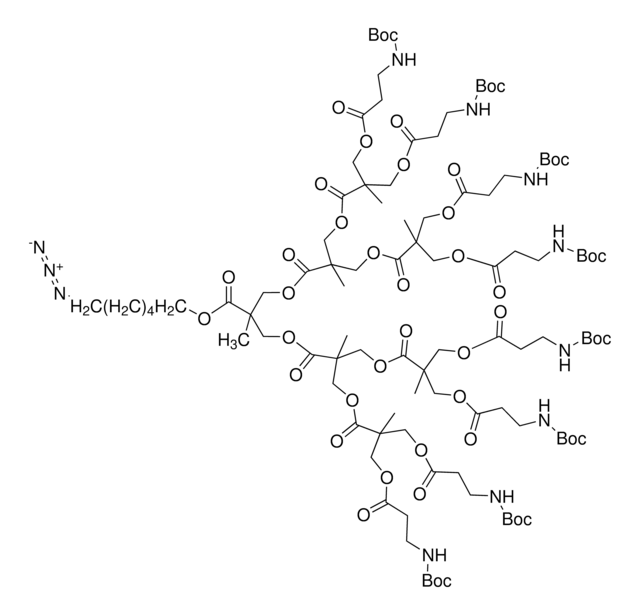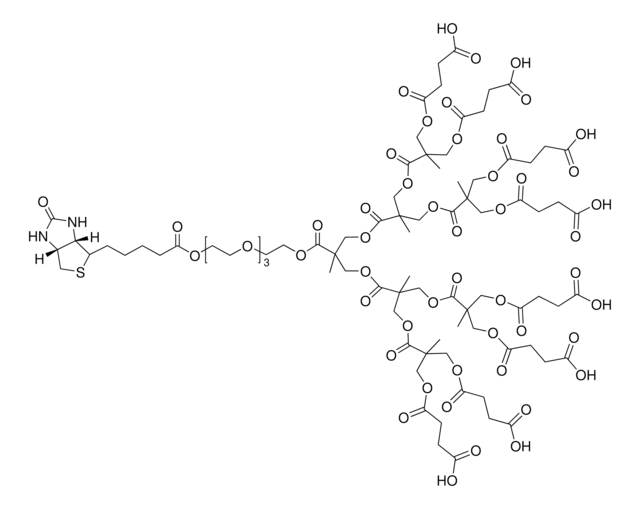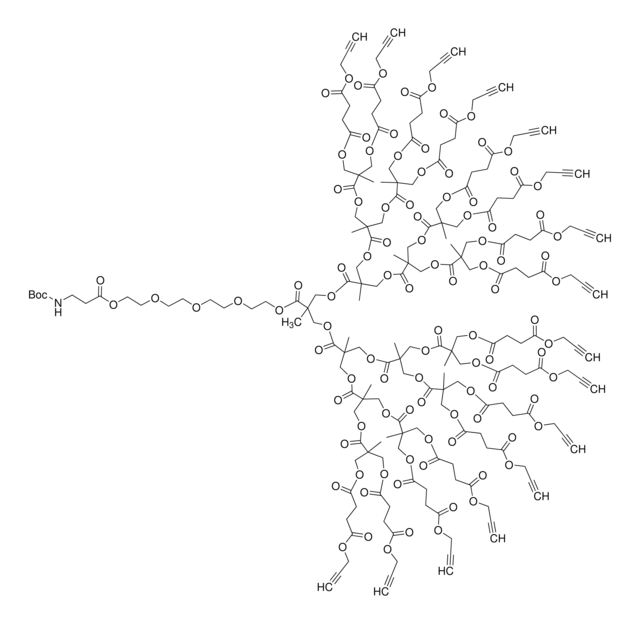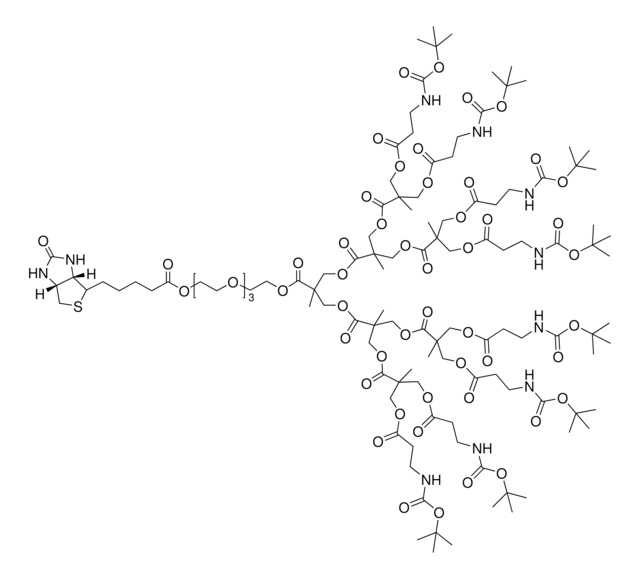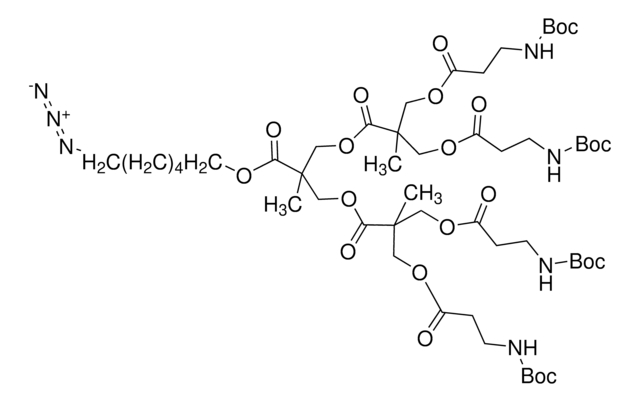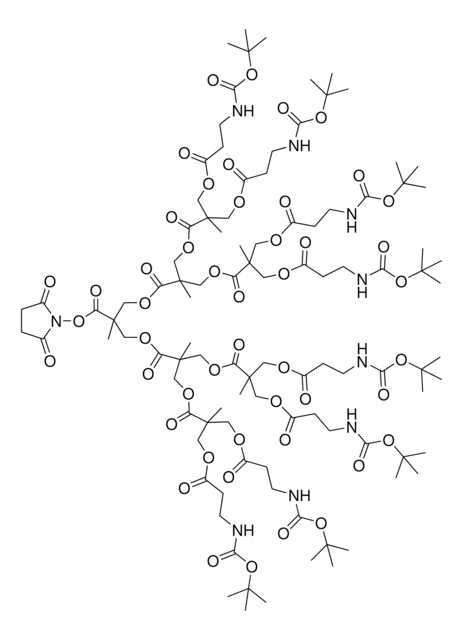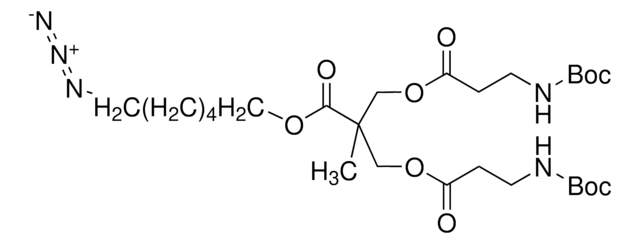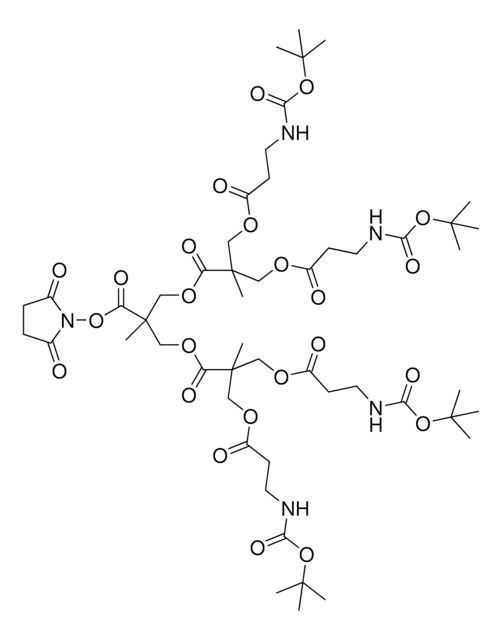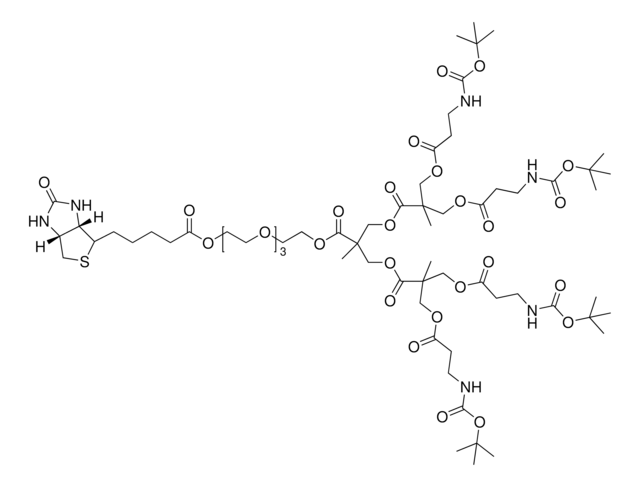901376
Polyester bis-MPA dendron
no. Surface Groups 8, 8 acetylene, 1 NHBoc (core), generation 3
Synonyme(s) :
PFd-G3-BOCNH-Acetylene, bis-MPA dendron
Se connecterpour consulter vos tarifs contractuels et ceux de votre entreprise/organisme
About This Item
Formule empirique (notation de Hill):
C107H135NO53
Poids moléculaire :
2283.19
Code UNSPSC :
12162002
Nomenclature NACRES :
NA.23
Produits recommandés
Niveau de qualité
Forme
solid
Poids mol.
generation 3
Nb de groupes de surface
8
Couleur
white to off-white
Température de stockage
−20°C
Catégories apparentées
Description générale
- Polymer architecture: Dendron
- Generation: 3
- Core functional group: Boc-protected amine
- End Group Functionality: Alkyne
- No. Surface Groups: 8
- Calculated Mol. Wt.: 2283.21 g/mol
- Boc : tert-Butyloxycarbonyl
- bis-MPA : 2,2-Bis(hydroxymethyl)propionic acid
Polyester bis-MPA dendron (8 acetylene, 1 NHBoc (core), generation 3), a high generation dendron, is synthesized by using anhydride activated bis-MPA monomers via divergent growth. It has a large and exact number of reactive groups and has dual functionalization capacity that makes it useful as a high-value scaffold.
Application
Bis-MPA (or 2,2-Bis(methylol)propionic acid) is an aliphatic, pro-chiral molecule comprised of two hydroxyls and one carboxylic group that has been used in the synthesis of many different types of polymers. Dendrons synthesized from bis-MPA are biodegradable and have low cytotoxicity, making them well suited for use in biological research applications. These materials have been used in many applications such as signal amplification in bioassays and in drug delivery applications. These alkyne-functionalized dendrimers can be readily functionalized using either copper(I)-catalysed alkyne-azide cycloaddition (CuAAC), strain-promoted alkyne-azide cycloaddition (SPAAC), or thiol-yne click reactions. Additionally, the amine-functionalized core can be readily used in EDC or DCC coupling reactions (after Boc deprotection) with carbonyl-containing compounds to yield highly functionalized materials for a variety of biomedical applications.
Code de la classe de stockage
11 - Combustible Solids
Classe de danger pour l'eau (WGK)
WGK 3
Point d'éclair (°F)
Not applicable
Point d'éclair (°C)
Not applicable
Faites votre choix parmi les versions les plus récentes :
Certificats d'analyse (COA)
Lot/Batch Number
Vous ne trouvez pas la bonne version ?
Si vous avez besoin d'une version particulière, vous pouvez rechercher un certificat spécifique par le numéro de lot.
Déjà en possession de ce produit ?
Retrouvez la documentation relative aux produits que vous avez récemment achetés dans la Bibliothèque de documents.
Anna Carlmark et al.
Chemical Society reviews, 42(13), 5858-5879 (2013-05-01)
Dendritic polymers are highly branched, globular architectures with multiple representations of functional groups. These nanoscale organic frameworks continue to fascinate researchers worldwide and are today under intensive investigation in application-driven research. A large number of potential application areas have been
Notre équipe de scientifiques dispose d'une expérience dans tous les secteurs de la recherche, notamment en sciences de la vie, science des matériaux, synthèse chimique, chromatographie, analyse et dans de nombreux autres domaines..
Contacter notre Service technique